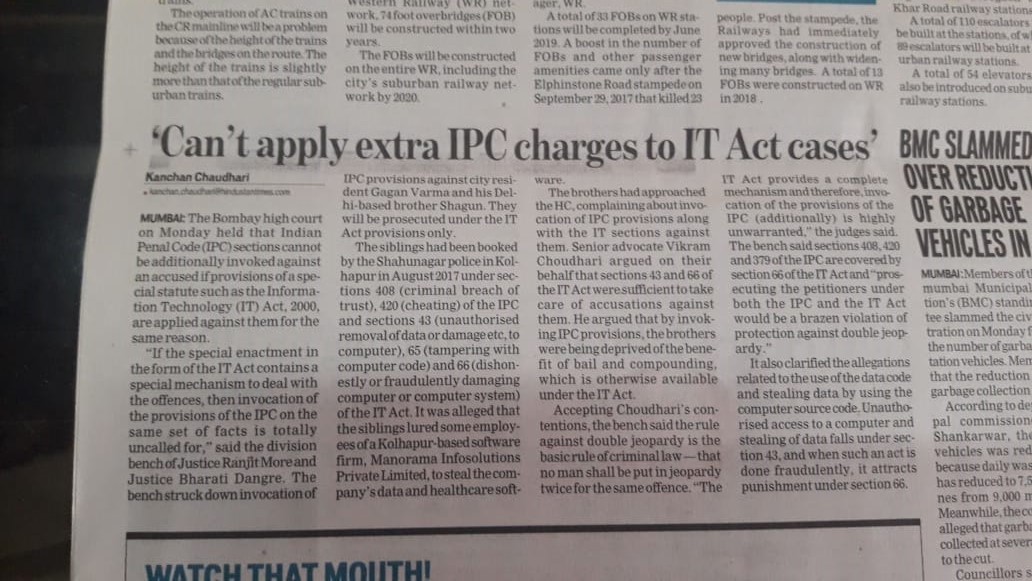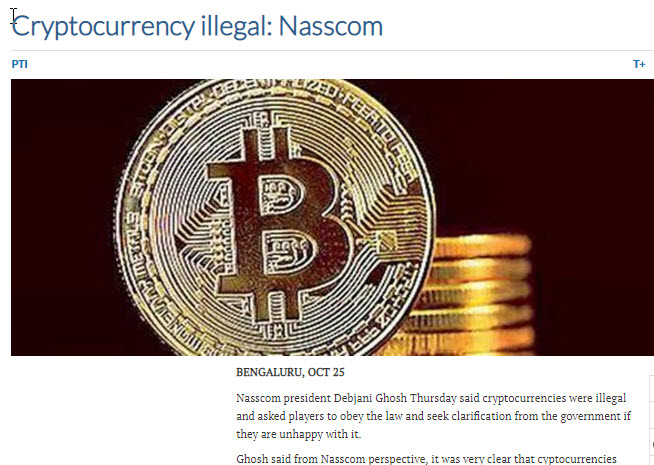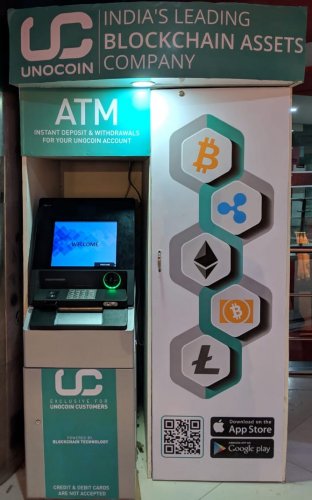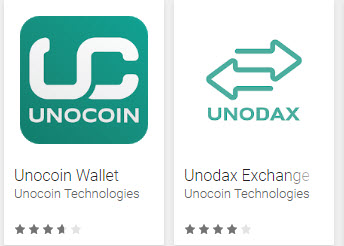 I as a citizen of India place this information for the attention of the honourable Supreme Court and demand that the Court should take into account the adverse effect that the Bitcoin regularization may have on the Indian Society before expressing its views which it may do shortly.
I as a citizen of India place this information for the attention of the honourable Supreme Court and demand that the Court should take into account the adverse effect that the Bitcoin regularization may have on the Indian Society before expressing its views which it may do shortly.
The Supreme Court will soon start deliberating on the issue of whether Bitcoin trading in India should be legitimized or not. When it does so, I urge the Supreme Court of India to act only with the interest of the Indian citizen in mind and not be bogged down in the technicalities of law or political considerations or be swayed by corruption.
This post is a public post and its knowledge cannot be denied by any body who is reasonably exposed to the Internet including the Supreme Court.
I request that honest citizens in the Social Media ensure that this view is also reflected in the deliberations at the Supreme Court.
If sufficient efforts are not taken by honest Citizens, the Supreme Court decision can be manipulated under one excuse or the other since the Supreme Court is not infallible.
The Merchants of Digital Black Money namely Bitcoin have approached the Supreme Court against the RBI directive that no Bank should engage itself with transactions in Bitcoin. The request is like asking the Supreme Court to force RBI to commit suicide and also murder the Indian economy.
As we understand, the Supreme Court has issued a notice in this regard to the Government of India for its views before coming to its own decision.
It is not clear why the Supreme Court wants the Government to provide its views in this regard. The Supreme Court itself can apply its wisdom and determine the legality or otherwise of the Bitcoin.
By dragging the Government into this, Supreme Court is giving an opportunity for political forces to play their part either in support or against Bitcoin.
Once the Government of India gives its views, it will allow the media to play it out as the view of Narendra Modi and bring all Anti Modi forces to oppose it on one ground or the other. There are enough advocates in the Supreme Court to jump in on any issue which is Anti Modi and Bitcoin will also be one issue on which these Anti Modi advocates would jump in.
From the past records of the Supreme Court, it is considered possible that the Supreme Court is used as a tool to bring Anti Modi arguments as part of a legal argument and allow a parallel political game to be played out in the media.
In the current instance, it is possible that the supporters of Bitcoin will bring in arguments of “Demonetization” and create a platform for criticizing the demonetization attributed to Mr Modi and project Bitcoin as a saviour of those who suffered otherwise from the demonetization. Since the political opponents who lost their black money during the demonetization operations are waiting for an opportunity to vent out their anger on Mr Modi, they will gang together to support the concept of Bitcoins.
The stakes are very high and there is no denying my concern that these political forces could corrupt the Supreme Court judgement also.
The Supreme Court should therefore be alert to this possibility and take care that they are not adversely influenced.
In view of this concern, I urge the Supreme Court to conduct this hearing under a live streaming broadcast so that the Citizens of India can view what goes on behind the closed walls of the Court.
We are aware that the Bitcoin merchants are promoting “Bitcoin” as a “Currency” and not as any other innocent commodity.
The fundamental philosophy of Bitcoin is that there should be no central regulatory authority that controls the issue of currency. As a result Bitcoin (and all other privately managed crypto currencies) operate as “Anonymous Assets” whose ownership and transactions cannot be traced.
The creation of Bitcoin is through an arbitrary system where a digital problem of hashing is floated to a set of persons and whoever solves it first is credited with a certain number of new Bitcoins and this adds to the general stock. Such persons called the “Miners” are themselves anonymous and they hold the stock of Bitcoins.
The “Mining” of Bitcoin has long gone out of the reach of any common man and is today an industry as much as the “Printing of Fake Currencies”. Many foreign Governments such as China have deep interest in this industry.
In the past, drug dealers, arm dealers and all hackers have been using Bitcoin as their currency of choice and hence over a period Bitcoin has become the “Currency of the Criminals”.
A large number of existing stock of the Bitcoins in the world which the merchants of digital black money are trying to legitimize through this intervention of the Court have once passed through an illegal and criminal transaction.
Hence when viewed as a commodity…. all Bitcoin stock that comes into trading is a “Tainted” as a stock which has been owned and transferred by a money laundering operation. Since Bitcoin as a commodity is not a “Negotiable Instrument”, the defects of the title once gained will get transferred to every subsequent holder of Bitcoin and hence any current holder of Bitcoin who trades through these exchanges will be trading in a “Tainted Commodity”.
Even if the transaction is recorded with a limited KYC as these Exchanges claim, it does not wash away the taint. The limited KYC system is only a fig leaf which is capable of and will be used to create “Money Mules” who will hide the real owners of the transactions.
The Judges are advised to understand the role of “Money Mules” in Nigerian Frauds to get the hang of why the limited KYC system cannot be relied upon.
Every transaction of Bitcoin is encrypted with its own encryption algorithms. This encryption is not approved by the Government under Section 84A of ITA 2000/8. Hence the block chain that supports the Bitcoin is not legal under the Indian law.
The RBI Act is clear that any “Currency” can be issued only by the RBI and it would be illegal for any body else to generate, promote and use an alternate commodity as “Currency”.
The Bitcoin supporters are clearly projecting it as an alternative to “Currency”. They have recently even set up an ATM in Bangalore and shown the intention of setting up a chain of Bitcoin ATMs across the country to carry on the conversion of Rupee to Bitcoin and vice versa.
Since Bitcoins are further convertible into other Crypto Currencies through exchanges outside India, once an Indian Citizen holds Bit Coin, he has access to global exchanges to convert it further as US Dollars or Japanese yen or Swiss Francs or Canadian Dollars. Hence the Bitcoin ATMs will work as “Virtual Havala Centers” and completely destroy the Indian Financial System.
What is being proposed by the Merchants of Digital Black Money is therefore a war on the Indian Economy and this is a conspiracy to destroy the country.
The Supreme Court has to recognize this ulterior motive behind the promotion of Bitcoin and ensure that these educated techies donot function like the Urban Naxalites.
There is therefore no legal ground for the Supreme Court by which Bitcoins can be declared legal unless it wants to use its power to interpret law in a manner that makes Bitcoin legal.
The Supreme Court has to recognize that if there is a legitimate way to convert Rupees into Bitcoins and there after Bitcoins become available for use as currency either on Amazon or other channels where day to day necessities can be bought and sold, the Bitcoin economy will eat into the real economy.
The Terrorists will find this the most convenient way of funding terrorism in India and even the stone pelters of Kashmir can be easily paid by the ISI through Bitcoins.
The Politicians can use this in the 2019 election and distribute the bribe for vote through Bitcoins. If the Supreme Court legitimizes Bitcoin it will directly aid and abet the corruption of the electoral process in the Country.
Hence legitimization of Bitcoin will result in the destruction of the country through multiple ways.
Supreme Court should therefore save the country by banning the Bitcoin once and for all.
It is considered that there are many in the bureaucracy who are corrupt and would like to ensure that Bitcoins survive. Hence the views of the Government need not necessarily follow the views of an honest Citizen expressed here. We have earlier highlighted how MCX, a wing of SEBI tried to allow its office to be used to corrupt the public consultation process when the Government committee was expected to formulate its views.
After this expose, the Committee never came out with its views. The speculation was therefore that the committee was divided in its views and hence never came out with its clear decision.
Even now the views of the Government may come from bureaucrats who cannot be relied upon as saviors of the country’s financial system.
Supreme Court is therefore the last hope (apart from Mr Modi as a person) to ensure that this Digital Black Money called Bitcoin, which is also the Currency of Criminals, is banished from India.
If Supreme Court does not fulfill its responsibilities and supports the survival of Bitcoin as a legit currency by hiding behind technicalities, it would be solely responsible for the destruction of the financial system in India.
Any such decision by the Supreme Court would provide an opportunity for Mr Modi to project that even the Supreme Court is not serious in eliminating Black money in India and he is the only saviour for the country to be voted back to power .
I have earlier urged the Government to declare that Bitcoin and all “Privately managed crypto currencies” should be declared as “Illegal” and this can be done even now with an ordinance or a law even if Supreme Court decides otherwise.
If this happens, it will result in the lowering of the prestige of the honourable Supreme Court and project Mr Modi to be the only hope for the country.
I therefore urge the Supreme Court not to give an opportunity for Mr Modi to declare “Demonetization of Digital Black Money in the form of Privately Managed Crypto Currencies”.
This will preserve the sanctity of Supreme Court and also prevent the chances of Mr Modi assuming the moral high ground over and above the Supreme Court.
Hence I urge the Supreme Court to declare unequivocally that Bitcoin and every privately managed Crypto currency is illegal in India and take the Government agencies such as RBI and ED to task for not enforcing a complete ban on the use of Bitcoin and Crypto currencies.
Naavi
P.S: The above are the personal views of the author Na.Vijayashankar and does not reflect the views of any organization that he may be directly or indirectly associated with.













